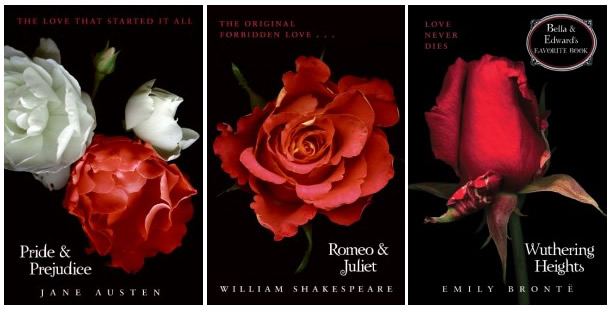Hello, MB! This is the last post in a series of posts rebutting last week’s Dear Author series on fanfiction. (That is, I think it’s the next-to-last. Either way, I just really like saying ‘penultimate.’) It’s also the 4th and final of a sub-set of posts responding to one DA post in particular: “Fanfiction: A Tale of Fandom and Morality.”
(I know, right? you thought it was never going to end and I was never going to move on from rebutting that post. WHAT KIND OF COLUMN IS THIS, you wondered. That makes two of us, guys, that makes two of us. WELL. THIS IS THE LAST ONE, I PROMISE.)
Before I dive in here, let me just issue, once again, the disclaimer that everything I write here is based on my own experiences and encounters with many different elements and aspects of many different kinds of fandoms. I have what I believe is a pretty broad perspective on fandom in general, but none of my thoughts on fandom should be taken as declarations of universal truth. If anyone wants my full and complete fandom bibliography I’ll happily provide it, but you really don’t want it because it’s long and boring and also includes this really awkward year where I was in the Kevin Spacey fandom. Trust me, let’s just not go there.

J/K, Boy-o, it’s cool.
In the previous three posts, I talked about the ways in which trying to police how influence works itself out in fiction is nearly impossible, and ultimately bad for the works on either side of the equation. I also talked about how it’d be a bit hypocritical for us to do that in the case of 50 Shades of Grey, our current controversial work of fanfic-turned-pro, given that one of the things publishers want writers to do is to appeal to the audience who shelled out for Twilight. In my last post I also discussed the potential for remix culture to change the way we think about creativity and the origins and ownership of creative ideas.
Now. There are a couple of potential negative aspects to this admittedly warm-fuzzy and optimistic scenario of industry free love. One of them Has mentions in her original post, and others I’ve had conversations with fans about throughout the past couple of weeks. They seem to boil down to the following arguments:
- pro-fic can threaten fandom by damaging the implicit “no profiting off fanwork” code between fans and creators, thereby causing authors to be, as Has puts it, “more proactive in protecting their books from fanfiction.”
- pro-fic can damage the quality and kind of fannish output, because instead of writing in order to critique specific canons, writers will come to fandom purely to exploit it and gain fanbases for their original works. We have already seen a bit of this in the Twilight fandom, according to Twilight fans themselves.
- pro-fic can alter the nature of fandom by jeopardizing the free-exchange and alternative profit structure that fandom has going for itself.
I think these are all really good points, and there’s precedent for each of them. However, the construction of each argument removes autonomy from fans–millions of fans–who have been operating within their own spaces long enough to know exactly what they’re doing and why they’re doing it. Take, for instance, the case of Fanlib, which was an infamous site begun in 2007 which attempted to exploit fan creativity in order to make money for corporate creations. The backlash from my corner of fandom against the whole idea of Fanlib was so strong that it partially fuelled a movement within fandom to create multiple platforms, blogging communities, archives, and even the non-profit organization for fan advocacy that would become the Organization for Transformative Works. All because many of us realized that if we didn’t create our own spaces that people outside of fandom would be all-too happy to exploit it. Former Fanlib user aurimyonys has a great post about realizing what was problematic about the site she loved:
In the end, what is niggling at me here is the idea of corporate invasion into fan fiction – making the things we write fit their molds rather than ours (there was indeed a brochure from the Fanlib company referring to the fan scripts and contests they ran, separate from the Fanlib website, that said fans’ creations were made “to fit in the lines, as in a coloring book”). That basically destroys fan culture. Fan culture allows fans to play with worlds in unique ways. If what we are permitted to do suddenly is assigned a strict formula, that kills fandom. Really and truly.
And that, my friends, scares the hell out of me.
Fandom has a proven track record of withstanding attempts by outsiders or TPTB to take it over, shut it down, or dictate to it. But is professionally written fanfic a kind of corporate invasion? I don’t think so, and the main reason I don’t is because the overlap between pros and fans, as I’ve previously discussed, has always been there. Policing the interplay between them is literally impossible whether the policing is coming from fandom or from copyright holders. The other main reason is that just like with every other creative field, one or two breakout successes don’t suddenly create an entire overwhelming trend of for-profit fics. The reason 50 Shades is getting this much attention is because its success is so unprecedented; there have been plenty of other bestsellers based on fanworks, absolutely, but always tacitly so. Fanfiction that was openly converted into original work which then became a bestseller? This has never happened before. To me, the far more amazing and phenomenal fact about all of this is that members of Twilight fandom actually built and created their own publishing houses in order to truly bypass the gatekeepers of publishing; but that aspect of 50 Shades’ success isn’t really being talked about in the media to any degree. And even when you look at the dozens of dozens of Twilight fics that have been converted into original works, they’re absolutely nothing against the millions of Twilight fanfics that are happily co-existing for free alongside them. Literally, millions. I haven’t actually counted the number of Twilight fanfics over on FF.net, but it’s probably at least 3 million or so. Probably much more. One bestselling fanfic-turned-original work, balanced against all of the others that are still being produced within the culture of free exchange that the majority of fandom is happy to uphold? That’s just simply not a threat to fandom, any more than it is to Stephenie Meyer.
This is also the part where I point out that nearly half a million people on Tumblr alone know what “OTP” stands for. Fan culture is evolving and changing all the time, but it’s converging with mainstream culture in ways that actually strengthen it, not weaken it. Tumblr fascinates me because the whole site is so synonymous with fandom at this point that you really can’t extricate fans who identify themselves as being part of “fandom” from all of the other fans who simply reblog, like, and participate in fandom jargon and culture without realizing that’s what they’re doing. And when you consider that all of this fandom activity is directly supporting the creators, it becomes clear that outsiders don’t need to exploit fandom, because fandom is already a juggernaut of profit-making for any creator with sense. If it wanted to, fandom could prove a formidable enemy to copyright, but it clearly doesn’t want. Its own internal resistance to the idea of for-profit converted fic makes that abundantly clear. (I am telling you, thank goodness Sherlock Holmes is public domain, because if he wanted to, Benedict Cumberbatch could probably summon his own mini-army of fans to overtake copyright and leave it squirming on the floor begging for mercy. )

(Twice.)
What’s more, fandom’s respect for its canons actively works to protect creators from those who actually would infringe upon their copyright. Anyone remember Kaavya Viswanathan? When fans of Megan McCafferty got their hands on copies of the book, they instantly twigged that there was plagiarism afoot, and they helped document passage similarities while the story was still breaking. The irony here, of course, is that Viswanathan herself was a huge fan of McCafferty; and not to apologize for her plagiarism, but if we take her statements–that she unconsciously internalized McCafferty’s novels and reused her language accidentally– as being true, then I can’t help but feel that if she’d been a part of a fandom where there was a community around McCafferty’s language and story concepts, then she would have been more self-aware when writing her own works, less likely to plagiarize whole chunks of language and scenes from McCafferty, because that impulse would have been channelled into the creative transformation that fanwork affords.
There’s one final thing that I’ve not yet touched on in each of these posts, and that is the basic question: is for-profit fanfiction ethically wrong?
I say no, and here’s why. I have written numerous articles and blogged many times about how the publishing industry does all of the following things to books because they think it will make them more marketable:
- whitewashes book covers
- tries to erase queer and genderqueer characters from narratives, and often succeeds
- queerwashes book covers to make butch, trans, or androgynous characters appear more binary gendered
- thinwashes narratives and book covers
- puts most of its financial and marketing support behind primarily white narratives
- perpetuates the idea that minorities and women will read stories about white men, but white men won’t read stories about minorities and women, which turns into an awful catch-22 of a self-fulfilling prophecy that has nothing to back up a compelling contrary prevailing belief, because none of those other stories get told.
- contributes, generally, to the danger of a single story
I believe that all of these extremely common occurrences within the publishing industry are immoral. I also believe that reclaiming heteronormative narratives, making them our own, and diversifying them, offering up alternatives to them, is far more ethical than supporting a hoary traditionalist system that wants to erase me, my friends, and other cultures besides my own. Which is why I believe that taking narratives out of the hands of the gatekeepers of traditional publishing–agents, editors, publicists, book-buyers–and putting them directly into the hands of people who want to read them can only ever be a good thing.
It doesn’t matter that most people wouldn’t find a book of BDSM erotica like 50 Shades of Grey particularly progressive or groundbreaking. To me, its function as a response to a literary phenomenon, its creation entirely within a fandom community, and its being placed directly into the hands of people who wanted to read it are all hugely progressive events. I believe every 50 Shades that a fandom produces actually paves the way for us to have more voices telling more stories, doing more things with narrative and modern technology, and telling more stories to more and more people. I believe that all of these things work to diversify our existing pools of literature, whether we’re writing the next Wide Sargasso Sea or the sixth millionth iteration of a SasuNaru fic where one of them gets turned into a bunny.
Plenty of people within fandom disagree with me, incidentally: there are many people who feel that trying to prove that all fanfic is transformative or empowering is a snooty and constricting activity, and I think that’s a valuable viewpoint too. To me, fanfic that is just produced for purposes of escapist entertainment is still transformative, because it’s still free work that’s being published for love and joy, and that still is a kind of response to established traditional means of producing literature. What gets me really excited is the idea that the millions of fanworks that exist can be all of these things at once: dialogic, monologic, pure porn, escapist, profound, literary, shallow, something in-between, or none of the above. And it’s still, all of it, working to increase the number of perspectives that get heard, the number of voices that get to speak. Fanfic that gets converted and published is still helping to do all of these things.
And what could be more “moral” than that?








